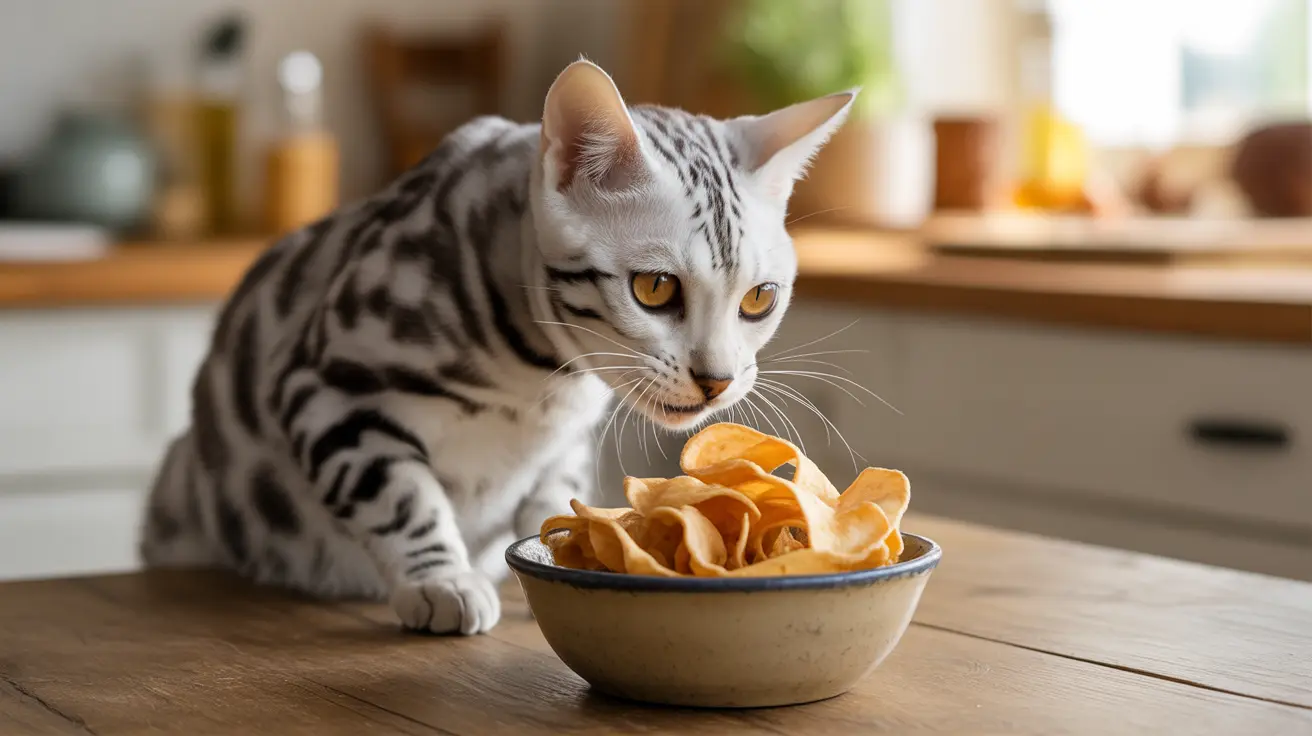If you've ever wondered whether your feline friend can share your pork rind snack, you're not alone. As cat owners, we often want to share our treats with our pets, but not everything that's tasty for humans is safe for cats. Let's explore the important facts about cats and pork rinds to help you make informed decisions about your pet's diet.
While cats can technically eat small amounts of plain pork rinds without immediate harm, these snacks are not recommended for feline consumption. Understanding why requires looking at both the nutritional content of pork rinds and your cat's specific dietary needs.
Understanding Pork Rinds and Their Impact on Cats
Pork rinds are created by deep-frying pig skin until it becomes crispy and puffy. While they might seem like a protein-rich snack, they're actually loaded with unhealthy fats and sodium that can be dangerous for your cat's health.
The primary concerns with pork rinds include:
- Extremely high sodium content
- Excessive saturated fat
- Lack of essential nutrients
- Potential choking hazards
- Risk of digestive issues
Health Risks of Feeding Pork Rinds to Cats
Immediate Health Concerns
When cats consume pork rinds, they may experience several immediate health issues:
- Vomiting and diarrhea
- Excessive thirst due to high sodium
- Choking on hard, sharp pieces
- Digestive discomfort
Long-term Health Risks
Regular consumption of pork rinds can lead to serious health problems:
- Obesity from high fat content
- Kidney strain from excess sodium
- Heart problems
- Pancreatitis
- Dental issues
Safe Alternatives to Pork Rinds
Instead of pork rinds, consider these healthy treats for your cat:
- Commercial cat treats designed for feline nutrition
- Small pieces of plain, cooked chicken
- Lean, cooked turkey bits
- Specialized dental treats approved by veterinarians
Monitoring Your Cat After Accidental Consumption
If your cat has eaten pork rinds, watch for these warning signs:
- Excessive drinking or urination
- Lethargy or unusual behavior
- Digestive upset
- Loss of appetite
Frequently Asked Questions
Are pork rinds safe for cats to eat as treats?
No, pork rinds are not safe as regular treats for cats. They contain excessive sodium and fat that can lead to serious health issues.
What health risks do pork rinds pose to cats if consumed?
Pork rinds can cause immediate problems like digestive upset and long-term issues including obesity, kidney problems, and heart disease due to their high fat and sodium content.
Can cats get necessary nutrients from pork rinds?
No, pork rinds lack essential nutrients that cats need. While they contain some protein, they're missing crucial nutrients like taurine and proper amino acids required for feline health.
How should I respond if my cat accidentally eats pork rinds?
Monitor your cat for signs of distress, ensure fresh water is available, and contact your veterinarian if you notice concerning symptoms like vomiting or lethargy.
What are healthier alternative protein treats for cats instead of pork rinds?
Opt for commercial cat treats, small pieces of plain cooked chicken or turkey, or veterinarian-approved dental treats designed specifically for cats.
Remember, while sharing food with our pets can feel like a way to show love, the best way to care for your cat is to stick to a diet specifically formulated for their nutritional needs. If you're ever unsure about a food item, consult with your veterinarian before offering it to your cat.






